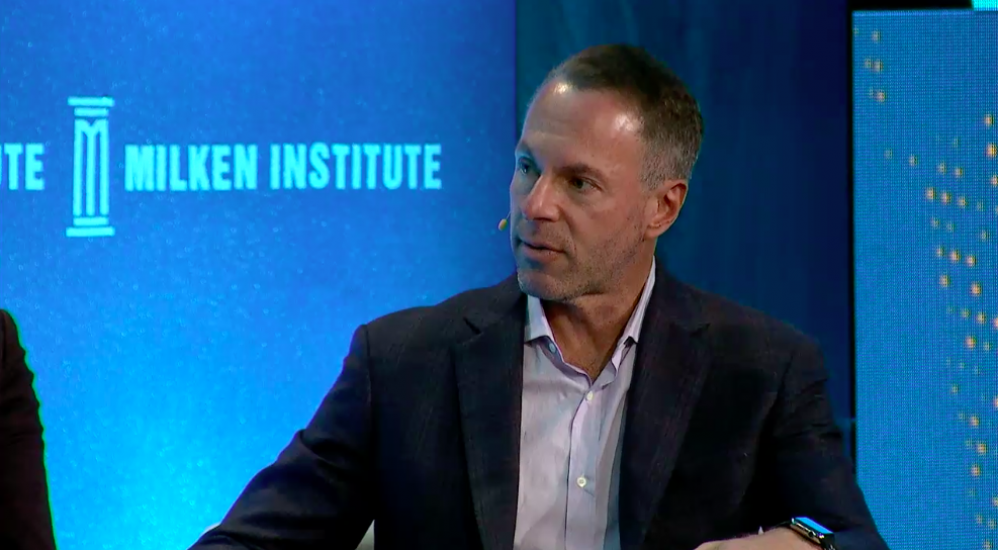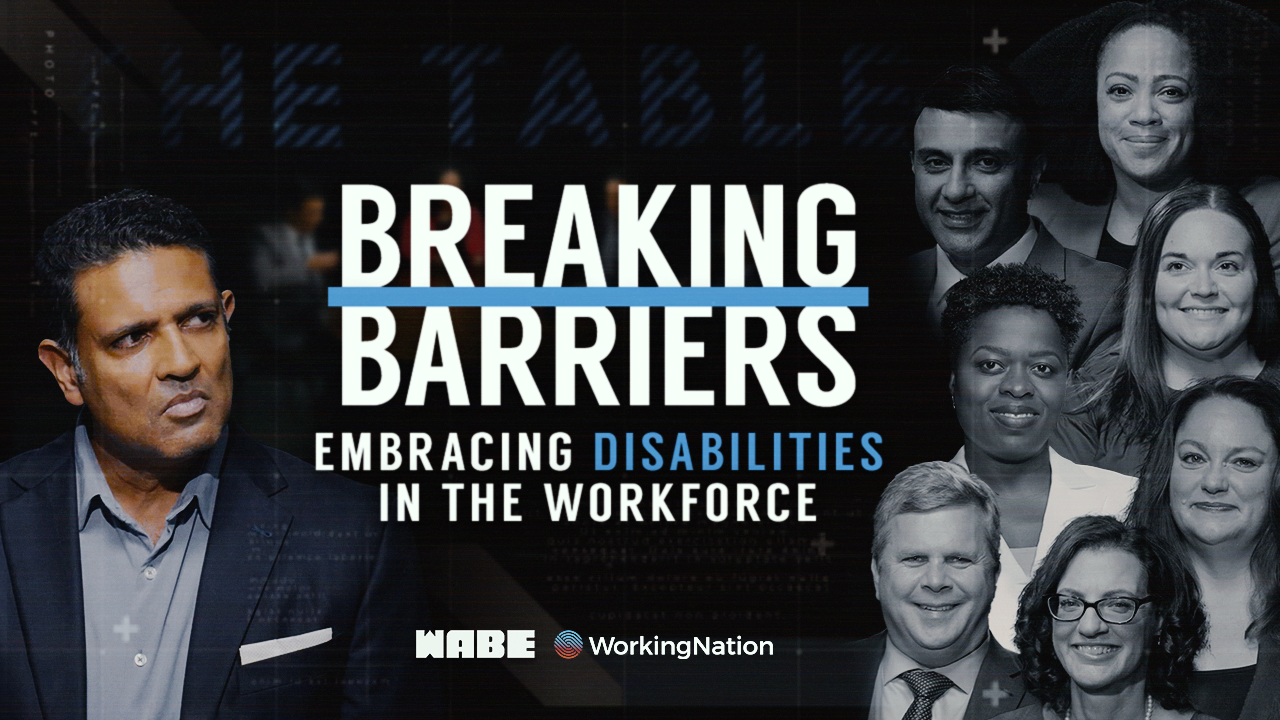The Milken Institute Global Conference kicked off in Los Angeles Monday bringing together 3,500 of the best minds in the world to tackle today’s most stubborn challenges.
While a range of issues facing our country and the world were addressed, the issue of jobs in today’s workforce was a hot topic of discussion among the panels. A topic that is near and dear to the Milken Institute who promotes prosperity and sustainable economic growth around the world by increasing the understanding of the dynamics that drive job creation and promote industry expansion.
Panels that tackled the subject included:
Creating Meaningful Lives for the 21st Century Workforce: A Conversation with Top Executives
Panelists John Chambers, Executive Chairman, Cisco; Denise Morrison, President and CEO, Campbell Soup Company; Tim Sloan, CEO and President, Wells Fargo & Co.; Mark Weinberger, Global Chairman and CEO, EY; and Devin Wenig, President and CEO, eBay Inc. discussed how corporate leaders must pursue and encourage growth while also promoting values that reach beyond the bottom line.
“[…] 80-90 percent of the college graduates aren’t trained in teamwork, collaboration, technology and the skills we need,” Chambers argued. “Yet our education system is moving in an old world fashion. And this is what is different from what has changed from two decades ago, it’s the speed of change. So we have to go with a national agenda in terms of digitization, a startup mentality (because that’s where most of the jobs will be created), we have to have the courage to redo education and there is no entitlement.
“I think the U.S. will lead in this, but we’ve let a lot of people get out in front of us. And that’s true on education, startups and directions. We have to change our education system, how we motivate people to become part of the organization and we have to speed where government and business work together.”
Related Solutions Highlighted by WorkingNation:
NC Students’ Careers Prepare for Takeoff at Apprenticeship Program with GE Aviation
Academy Mentors Young, Black Men on Road to Entrepreneurship
JPMorgan Chase Awards $20M to 10 States to Tackle Youth Career Readiness Crisis
FutureWork: Model of the Future
Trends Shaping Technology, Business and Society
Panelists Adrian Aoun, Founder and CEO, Forward; Former Head of Special Projects, Alphabet; Belinda Johnson, Chief Business Affairs and Legal Officer, Airbnb; Oscar Salazar, Founder, Pager, Inc.; Founding CTO, Uber; Hans Tung, Managing Partner, GGV Capital; and Devin Wenig, President and CEO, eBay Inc. debate the pros and cons of the impact technology will have on jobs, accountability and what can be done to help workers in industries that are impacted.
“There are a lot of jobs being created in the sharing economy that are already relying on machine learning and A.I. […] That doesn’t mean that there aren’t second and third level effects,” said Wenig. “[…] look at the retail industry, we’re far from the vision of A.I. or machine learning, but by some studies a quarter of the jobs in the United States are supported by the retail industry—and they’re in trouble. And it’s technology that’s created that.
“So, I think that championing things like education, championing the skills that are going to be needed in the new economy, we’re missing a great opportunity right now [to ask]: why aren’t we educating students in the United States to get ready for the economy that’s going to be coming that’s going to be shaped by the trends that we’re talking about? Why isn’t computer science and STEM education mandatory for K-12 students in this country?”
Related Solutions Highlighted by WorkingNation:
Supermodel Karlie Kloss Launches Coding Camps to Teach Girls ‘Superpower’ Skill
Why Ohio Communities Are Betting Big on Transforming Higher Education
Silicon Holler: How Tech Training Is Bringing Jobs to Appalachia
Talent Pipeline Management: An Employer-Led Solution to Close the Skills Gap
AI: Reshaping the World As We Know It
Panelists explored the many benefits and potential hazards that AI delivers across multiple industries.
Not Working: Solutions to America’s Underemployment Crisis
Panelists discussed the new social reality in the U.S.: Fewer men and women are participating in the workforce, and many have stopped looking for jobs altogether.
Related Solutions Highlighted by WorkingNation:
How 3 Cities are Training America’s Workforce
LA Company Transitions Workers Into Tech Careers
Cities Providing Meaningful Opportunities For People In Their Golden Years
Unleashing Innovation: Advancing a Creative, Productive and Competitive Workforce
Panelists examined the tools leaders can use to foster innovation and remain competitive and relevant.
Outside of panels specifically aimed at today’s workforce, during a lunch program interview at the conference JPMorgan Chase & Co. Chairman and CEO Jamie Dimon called on reducing regulations to foster a more business-friendly economy that supports workers, stressed the fact that technology advancements are not the enemy of job creation, and that the government needs to spend more money on programs that provide education and work opportunities for people.
I, Worker: Employment in the Age of Robots
Panelists discussed what can be done to prepare for the transition of robots and artificial intelligence in today’s workforce, what skills and jobs will be relevant, and what effects the aging workforce will have on the future.
WATCH: Bloomberg interview: Box CEO Levie Optimistic That Automation Will Create Jobs
Aaron Levie, Box Inc.’s chairman and chief executive officer, discusses the impact of automation on employment with Bloomberg’s Scarlet Fu at the Milken Institute Global Conference.
SEE ALSO: Art Bilger on Bloomberg: How Technology Is Impacting the American Workforce











